Farmers at the Intervale Center on a steady but uncertain path to post-flood recovery
The July flood wiped out nearly all crops and much of the equipment at the Intervale Center, Burlington's agricultural hub.
This, after months of cleaning up and replanting, farmers conducted a small but significant fall harvest.
"There's a deep sense of relief," said Micah Barritt of Diggers' Mirth, a collective farm at the Intervale Center. "There's like a return of normalcy, the farm how we know it to look."
The Intervale Center was flooded up to about four or five feet of water, according to land manager Patrick Dunseith. Farmers went out on kayaks to survey the fields they had walked through just a day prior.
"I don't think I've ever seen in the course of like eight hours a place go from this to like a swamp," said C Green of Diggers' Mirth. "There was a few weeks where I legit thought that the season was over."
The flood hit at the height of the growing season, wiping away months' worth of work at a critical time.
"It was devastating, I think, on an emotional level," Barritt said. "Seven months of work just got washed away and we had to start all over. That part was really hard."
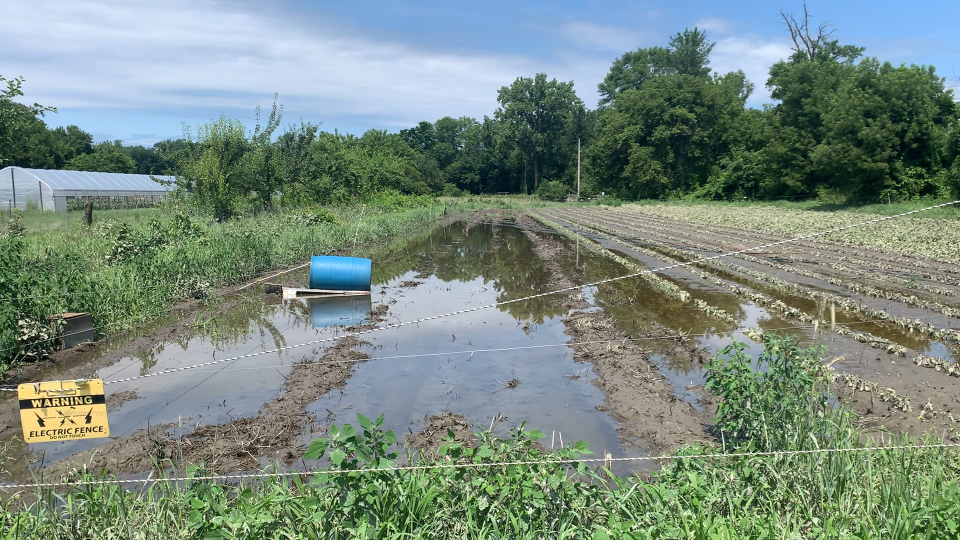
The Intervale is located in the Winooski River Valley floodplain, which contributes to the richness of the land's soil, but also makes it more susceptible to disasters like this year's.
The recovery process
After the flood, cleanup took weeks. Heavy, wet, decaying organic matter had to be pulled out of the ground.
"The crops and all the other plants − one, they were yellowed out. Just like, zapped of color. And covered in this muck," Green said.
And then the extensive rain that followed the flood made replanting difficult, because the saturated soil suffocated the plants, Zeitlyn said.
Wet soil also makes plants more susceptible to disease, which many farms struggled with more than usual this year, Dunseith said.
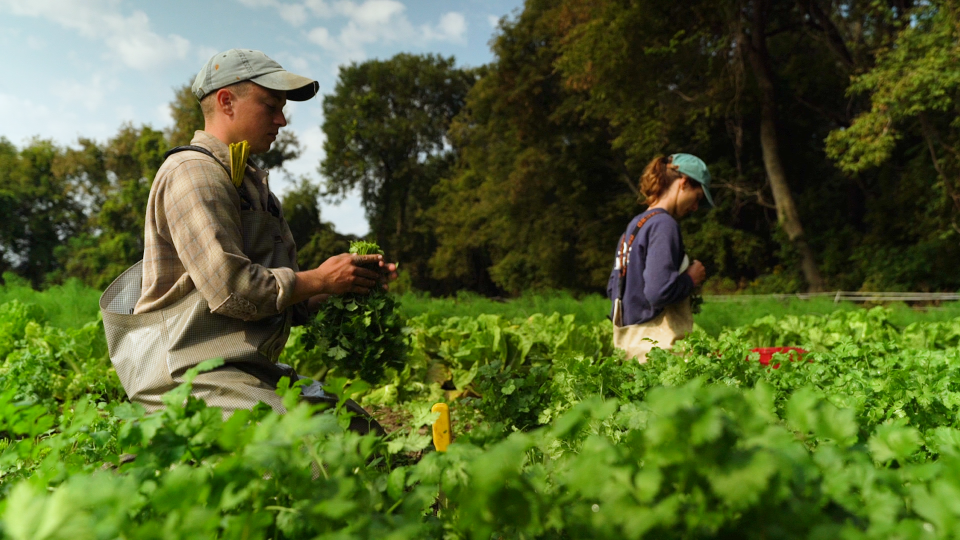
Diggers' Mirth, in collaboration with the University of Vermont Extension, tested their soil for contaminants, and thankfully found that the soil was as clean as it was before the flood, according to Barritt. After waiting several weeks to make sure the soil was good to go, the farmers buckled down and started replanting.
"I didn't know if we were gonna be able to plant again," Barritt said. "This is really incredible."
Which crops to expect this fall harvest
By July, there was not enough time left in the year for farmers to replant crops that take a long time to grow. This forced farmers to focus on crops that can be grown over short periods and withstand a light frost.
"Our fall is looking really different than usually does," said Barritt. "We're having what feels like a spring harvest here, and it's fall."
Many characteristic fall crops like butternut squash and pumpkin will be hard to find this year at the Intervale, because they take a long time to grow and there wasn't enough time left to replant them after the flood. For the same reason, watermelon, carrots, beets, brussel sprouts, tomatoes, peppers, eggplant, and daikon radish were scant.
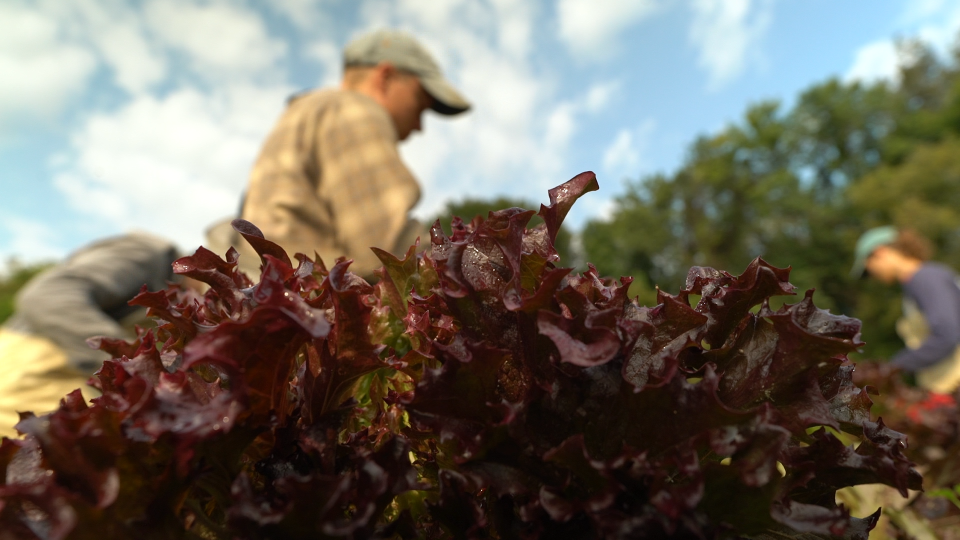
"I would say like this year's fall just like lacks a lot of the variety that I find really engaging," Green said.
Crops that will be harvested this fall are ones that can be grown quickly: kale, lettuce, beans, mustard greens, spinach, cilantro, baby bok choy, napah cabbage, fennel, and molokhia.
In addition to the variety of crops being reduced, the quantity was also significantly cut down. This year's total yield for Diggers' Mirth is expected to be about a third of last year's, according to co-owner Dylan Zeitlyn.
Help from the community
"The magnitude of this flood was so much greater than we expected," Barritt said. "And also, on the other end of the emotional scale, is our community really stepped up — supported us financially, supported us with offers of help to clean up at the farm."
There were days where 30-40 volunteers were at Diggers' Mirth to help out, according to Green.
"We're gonna be okay, you know. We're not gonna go broke and go out of business. And it's amazing," Zeitlyn said. "Thank you to, like, so many people for that."
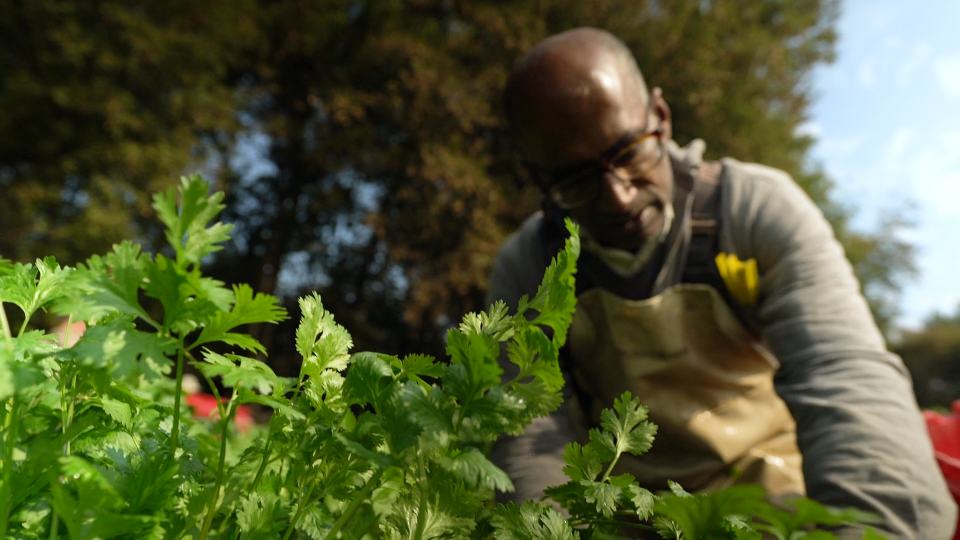
Through GoFundMe, Diggers' Mirth has raised over $68,000 in community donations. The Intervale Center raised over $350,000 for the farms that lease land from them, including Diggers' Mirth.
"Without the community support and things like that, I mean, we would probably be doing some serious thinking of whether we'd want to continue with the levels of risk down here − and the increasing levels of risk," Zeitlyn said.
The future of the Intervale
This summer's flood and rain was extraordinary for Vermont. From June through August, Montpelier endured a record-breaking 22.72 inches of rain, according to the National Weather Service. The Winooski River reached its second-highest crest of all time at Montpelier and Waterbury.
"The flood really highlighted for us that climate change is going to be impacting us all in very real ways," Dunseith said.
The increasing chance of flooding in the Intervale might require farmers in the floodplain to focus more on fast-growing crops year-round, according to Dunseith.
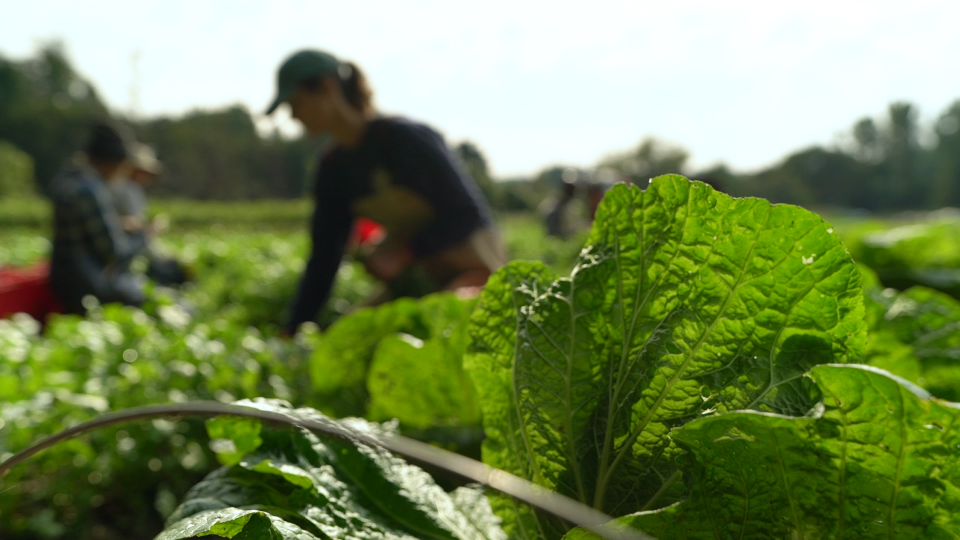
"Some of the conversations that'll be really important for farms to be having is about what kind of crops they grow and are there certain crops that don't necessarily make sense to be growing in the floodplain with this seemingly looming threat of more frequent flooding," Dunseith said.
Farmers in the Intervale might increasingly work in partnership with farmers outside of the floodplain, to coordinate who is growing the shorter and longer season crops, according to Dunseith.
"Thinking a little bit more on a larger scale about how we're meeting the community's need for different foods," Dunseith said.
Contact April Fisher at amfisher@freepressmedia.com. Follow her on Twitter: @AMFisherMedia
This article originally appeared on Burlington Free Press: Farmers on the post-flood fall harvest at the Intervale Center

